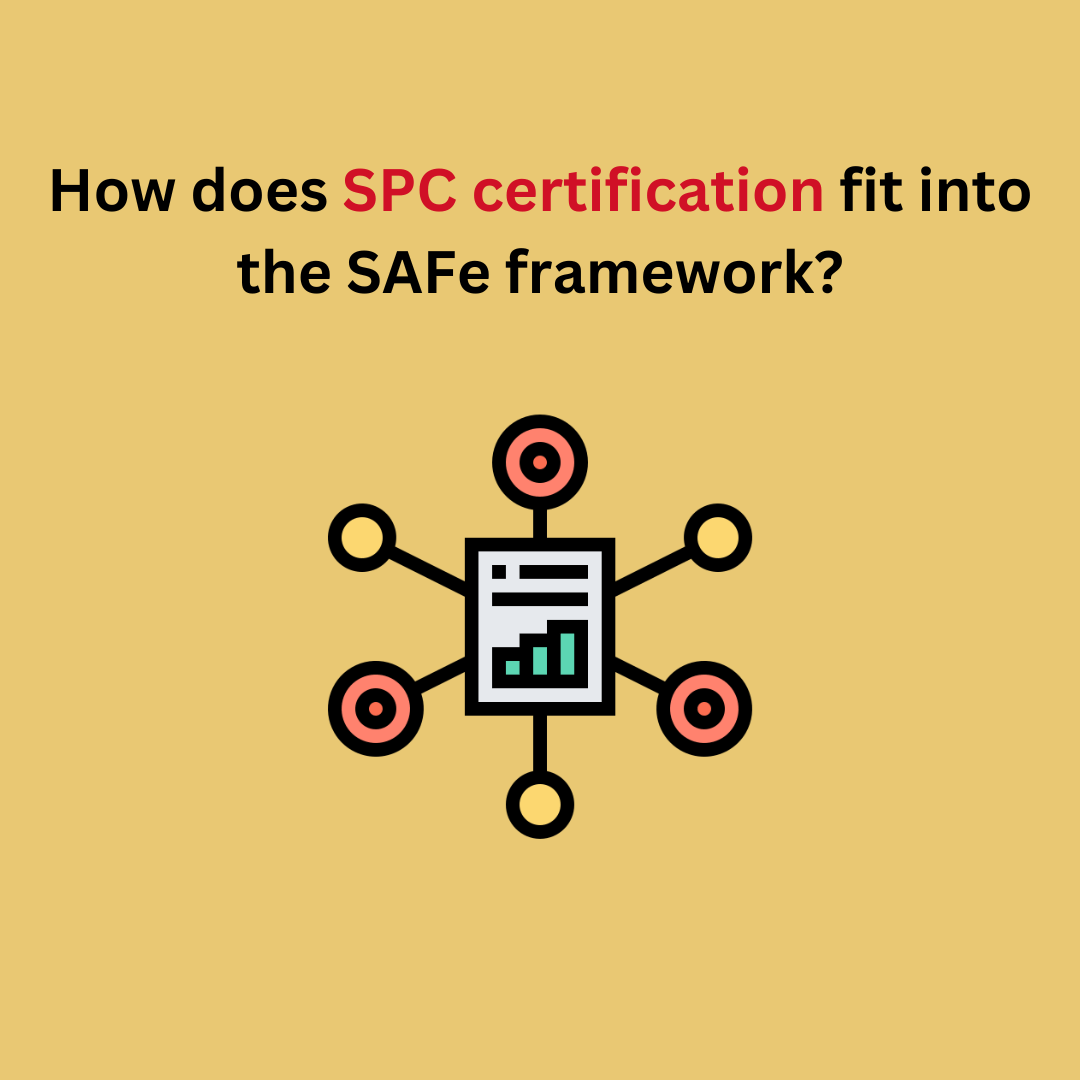Introduction :-
The SAFe Practice Consultant (SPC) certification plays a pivotal role within the Scaled Agile Framework (SAFe), serving as a cornerstone for organizations seeking to implement Agile practices at scale. As businesses increasingly recognize the need for agility in a fast-paced market, the SPC certification equips professionals with the necessary skills to lead and facilitate successful transformations. This blog delves into how SPC certification fits into the SAFe framework and its significance for organizations and individuals alike.
1. Understanding the SPC Role
The Safe SPC certification is designed for individuals who aspire to become change agents within their organizations. Certified SPCs are responsible for leading Lean-Agile transformations by leveraging the principles and practices of SAFe. They act as coaches, mentors, and trainers, guiding teams and leadership in adopting Agile methodologies effectively. This role is crucial as it helps bridge the gap between traditional project management approaches and modern Agile practices.
2. Training and Coaching Responsibilities
One of the primary responsibilities of an SPC is to train various stakeholders within an organization. This includes not only Agile teams but also managers and executives who need to understand how to support Agile initiatives. The SPC training prepares individuals to deliver courses such as Leading SAFe, which provides foundational knowledge about SAFe principles, roles, and practices.
Moreover, SPCs are equipped to train teams in specific SAFe roles, such as Scrum Masters, Product Owners, and Release Train Engineers. By providing this training, SPCs ensure that everyone involved in the Agile transformation has a clear understanding of their responsibilities and how they contribute to the overall success of the organization.
3. Implementing SAFe Practices
The SPC certification focuses on implementing SAFe practices across an organization. This includes establishing Agile Release Trains (ARTs), which are essential for coordinating multiple teams working on related projects. SPCs guide organizations through the SAFe Implementation Roadmap, helping them identify value streams, prepare the organization for change, and launch ARTs effectively.
By leading these initiatives, SPCs help create a structured approach to scaling Agile practices that aligns with business objectives. Their expertise ensures that organizations can adapt quickly to market changes while maintaining high levels of efficiency and quality in their product delivery.
4. Continuous Improvement Culture
Another critical aspect of the SPC role is fostering a culture of continuous improvement within organizations. SPCs encourage teams to regularly reflect on their processes through retrospectives and feedback sessions. By promoting a mindset of learning and adaptation, they help organizations identify areas for improvement and implement changes that enhance performance.
This focus on continuous improvement is vital in today’s dynamic business environment, where organizations must remain agile to respond to evolving customer needs and competitive pressures.
5. Networking and Community Engagement
Upon obtaining the SPC certification, professionals gain access to a vast network of SAFe practitioners through the SAFe Global Community. This community offers valuable resources for ongoing learning, collaboration, and sharing best practices among peers facing similar challenges in Agile transformations.
Being part of this community not only enhances an individual’s professional development but also provides opportunities for networking with other certified professionals who can offer insights and support throughout their Agile journey.
6. Global Recognition
The SPC certification is globally recognized and respected within the Agile community. It signifies a professional’s commitment to mastering SAFe principles and their ability to lead organizational change effectively. Many organizations seek out SPC-certified professionals when implementing or scaling Agile practices, making this certification a valuable asset for career advancement.
Conclusion
The SAFe Practice Consultant (SPC) certification is integral to successfully implementing the Scaled Agile Framework within organizations. By equipping professionals with training, coaching skills, and practical knowledge of SAFe practices, the SPC certification empowers them to lead Lean-Agile transformations effectively.
As businesses continue to navigate complex market dynamics, having certified SPCs at the helm of Agile initiatives ensures that they can adapt quickly while delivering value efficiently. For individuals looking to make a significant impact in their organizations or advance their careers in Agile leadership roles, obtaining an SPC certification is a strategic move that aligns with both personal growth and organizational success.
























































































































































































































































































































































































































































































































































































































































































































































































